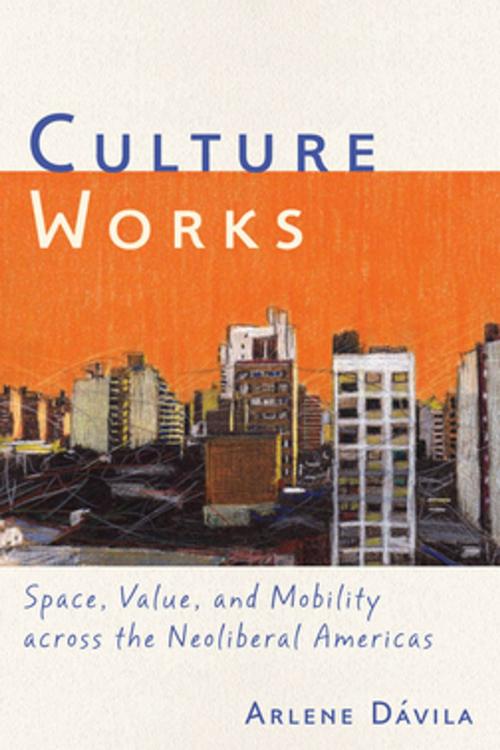Culture Works
Space, Value, and Mobility Across the Neoliberal Americas
Nonfiction, Social & Cultural Studies, Social Science, Cultural Studies, Customs & Traditions, Anthropology| Author: | Arlene Dávila | ISBN: | 9780814744321 |
| Publisher: | NYU Press | Publication: | April 16, 2012 |
| Imprint: | NYU Press | Language: | English |
| Author: | Arlene Dávila |
| ISBN: | 9780814744321 |
| Publisher: | NYU Press |
| Publication: | April 16, 2012 |
| Imprint: | NYU Press |
| Language: | English |
Culture Works addresses and critiques an important dimension of the “work of culture,” an argument made by enthusiasts of creative economies that culture contributes to the GDP, employment, social cohesion, and other forms of neoliberal development. While culture does make important contributions to national and urban economies, the incentives and benefits of participating in this economy are not distributed equally, due to restructuring that neoliberal policies have wrought from the 1980s on, as well as long-standing social structures, such as racism and classism, that breed inequality. The cultural economy promises to make life better, particularly in cities, but not everyone can take advantage of it for decent jobs.Exposing and challenging the taken-for-granted assumptions around questions of space, value and mobility that are sustained by neoliberal treatments of culture, Culture Works explores some of the hierarchies of cultural workers that these engender, as they play out in a variety of settings, from shopping malls in Puerto Rico and art galleries in New York to tango tourism in Buenos Aires. Noted scholar Arlene Dávila brilliantly reveals how similar dynamics of space, value and mobility come to bear in each location, inspiring particular cultural politics that have repercussions that are both geographically specific, but also ultimately global in scope.
Culture Works addresses and critiques an important dimension of the “work of culture,” an argument made by enthusiasts of creative economies that culture contributes to the GDP, employment, social cohesion, and other forms of neoliberal development. While culture does make important contributions to national and urban economies, the incentives and benefits of participating in this economy are not distributed equally, due to restructuring that neoliberal policies have wrought from the 1980s on, as well as long-standing social structures, such as racism and classism, that breed inequality. The cultural economy promises to make life better, particularly in cities, but not everyone can take advantage of it for decent jobs.Exposing and challenging the taken-for-granted assumptions around questions of space, value and mobility that are sustained by neoliberal treatments of culture, Culture Works explores some of the hierarchies of cultural workers that these engender, as they play out in a variety of settings, from shopping malls in Puerto Rico and art galleries in New York to tango tourism in Buenos Aires. Noted scholar Arlene Dávila brilliantly reveals how similar dynamics of space, value and mobility come to bear in each location, inspiring particular cultural politics that have repercussions that are both geographically specific, but also ultimately global in scope.















